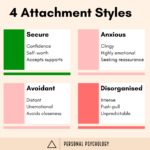Navigating relationships in today’s world can feel like walking through a maze with constantly shifting walls. The ways we connect, communicate, and commit have been transformed by technology, societal shifts, and evolving norms. Psychologists see how these changes can lead to both opportunities and challenges, often leaving people feeling lost or overwhelmed. Let’s explore some of these dynamics and offer practical insights to help you build meaningful connections.
Table of Contents
Social Influence Theory, the Need to Fit In
Social influence theory explains how our relationship expectations are shaped by those around us, like friends, family, and even societal narratives. From a young age, we absorb ideas about what love should look like, often unconsciously. Peer groups and media can reinforce these ideas, creating pressure to conform. However, these influences can sometimes conflict with our personal needs, leading to confusion and dissatisfaction in relationships.
The desire to fit in can overshadow our individual preferences, making it difficult to notice what we really want. For example, societal emphasis on marriage timelines or romantic milestones might lead to anxiety if our lives don’t align with these expectations. Recognising these external pressures is the first step toward cultivating relationships that truly suit us.
Online interactions change what counts as social proof. Likes, matches, and public posts become shortcuts for desirability and that pushes people to perform instead of to communicate honestly. That pressure favours surface-level signals, like curated photos, punchy bios, and public displays of emotion over quieter, but ongoing compatibility.
For many, this means challenging assumptions and asking, “What do I genuinely want in a relationship, beyond what society expects?” This self-reflection can lead to more authentic connections that align with personal values.
Confluent Love vs. Romantic Love
Confluent love, a concept popularised by sociologist Anthony Giddens, is based on the idea that love should be beneficial and support our personal growth. In this model, relationships are sustained as long as both partners feel they are getting what they need. Romantic love, on the other hand, often emphasises unconditional commitment, no matter the challenges.
While confluent love can offer flexibility, it risks instability when one partner feels the benefits are no longer real. Romantic love, while idealistic, can sometimes lead to unhealthy sacrifices or getting stuck in unhealthy relationships. Balancing the two and finding a relationship that supports growth while also weathering storms is key to long-term satisfaction.
The shift toward confluent love is partly driven by a more individualistic society, where personal fulfilment is prioritised. However, this can lead to a fear of commitment, as the idea of settling feels like a loss of self. Understanding these dynamics can help us navigate relationships with more clarity and intention.
The Situationship
A situationship is that confusing in-between stage where you’re not just friends, but you’re not officially dating either. You might be texting often, spending time together, and maybe even sleeping with each other, but there’s no label, no clear future, and no real commitment. Unlike a casual relationship, where both parties usually understand that it’s just for fun, a situationship leaves you wondering if this is going anywhere. It can feel exciting at first, but when you’re ready for something real, that ambiguity can be exhausting. You start wondering if this is going anywhere, or if you’re just waiting for something that might never happen.
Situationships mean that you are in an undefined partnership that is neither dating nor a one-night stand. Something that neither of you are labelling. Situationships have become common and feel normal as a low-commitment default. Recent studies show that 50% of 18-29-year-olds have been in a situationship, making it a common experience in modern dating. Situationships can work in the short run by providing company without long negotiations and by fitting around careers and other priorities. But their commonness hides the emotional cost of not knowing where the relationship stands, especially when one person wants more.
The ambiguity of situationships can be both a blessing and a curse. On one hand, it removes societal pressures to define a relationship prematurely. Because situationships feel safer in the moment, people stay in them longer than intended and end up with less confidence about finding stable relationships. Fixing that requires naming the relationship and setting clear boundaries so both people know what to expect.
The ambiguity of a situationship eats away at basic relationship skills like negotiating shared plans, responding predictably, and trusting the other person. When boundaries are vague, small disappointments build up because signals are guessed instead of discussed. Over time, that pattern creates repeated hurt and withdrawal that makes it harder to trust.
It’s important to assess whether this dynamic is serving your emotional needs or leaving you unfulfilled.
Losing Conflict Management Skills in an Asynchronous World – Being Ghosted Online
Digital communication has changed the way we handle conflict. Facial expressions, tone, and timing are compressed into emojis. Emojis and asynchronous messages can be misinterpreted, leading to long-lasting and unresolved misunderstandings. Additionally, the ability to ignore messages without immediate social repercussions can discourage resolution. Face-to-face conversations, once the norm for conflict, are now often avoided in favour of texting or, even worse, being ghosted online.
The lack of practice in managing conflict in person can destroy our ability to navigate disagreements effectively. When we avoid difficult conversations, we miss opportunities to grow and strengthen our relationships and learn about ourselves and our partners. Rebuilding these skills is so important for healthy connections, whether romantic or otherwise.
This shift also reflects broader societal trends, where quick, low-effort interactions are preferred. However, meaningful and lasting relationships require effort, including the hard work of resolving conflicts. Investing time in these skills will lead to deeper, more resilient connections. Setting expectations about response times, using voice or video for charged topics, and naming repair attempts when they happen help relationship skills. These steps bring back give-and-take and reduce the confusion that asynchronous habits create.
Lack of Good Parental Examples and the Age of Independence
Growing up with poor relationship models from parents can unconsciously shape our own relationships. Whether it’s a lack of communication, control, or emotional unavailability, these patterns can repeat if not intentionally addressed.
Many people today are financially or emotionally dependent on their families longer than previous generations. While this support can be helpful, it can also hinder the development of independent relationship skills. Establishing autonomy before entering serious relationships can provide a stronger foundation for both partners, but the opposite is true: if we never learn how to navigate an independent life, it would be even harder to navigate it with someone else.
Reflecting on how our upbringing influences our expectations is a vital step in breaking negative cycles. Psychologists provide a valuable space to explore these patterns and develop healthier relationship habits.
Market Style Dating, Objectification, Gamification, and Zero Effort Culture
Dating apps push a market view where people are seen as items to shop for using swipes, matches, and short lists of traits. This setup encourages optimisation strategies like trying for the highest value match, and discarding anyone who seems uncertain. With countless options, investing time and energy into any single match can feel like a losing strategy. The design of apps pushes people to treat others like products instead of people.
Game-like features such as queues, “superlikes”, and streaks reward quick dopamine hits, not effort to find a partner. When the app rewards short-term wins, the messy work of building trust, being vulnerable, and doing the small things that matter becomes less appealing. This encourages a “zero-effort culture”, where keeping options open seems safer than investing in one person.
The thrill of a match or the fear of missing out can distract from the goal of forming genuine connections. It’s important to remember that dating apps are tools, not endpoints, for building relationships.
Zero-effort culture causes predictable harms, like emotional stunting and growing loneliness, even while activity on the dating scene seems high. This then ends with an inability to form deep connections. The result is a cycle of missed connections, as both parties hold back, waiting for someone “better” to come along.
The antidote is to treat dating as a skill, not a game. Show up to dates, commit to learning about another person, and accept that relationships are not only imperfect, but also take time, risk, and work.
Cognitive load, Burnout, and the Paradox of Choice
Juggling multiple apps, arranging logistics and keeping several semi-active conversations creates a mental tax that lowers the chance of a real connection. Too many choices make every person feel replaceable, which reduces motivation to invest in any single interaction. Over time, that decision fatigue leads to pulling back from dating rather than greater happiness.
The paradox of choice pushes attention toward quick filters like appearance and short checklists because they are faster to apply. That speed helps in the moment, but is a poor way to predict long-term fit. People who manage many options often feel exhausted, not fulfilled and their ability to form lasting bonds drops.
Practical recovery means narrowing focus on purpose. Limit active conversations, schedule fewer dates with clear goals to connect and learn, and prioritise people who follow through. Reducing mental load frees up space to notice real compatibility and to build something that lasts.
Casualisation after COVID and Delayed Commitment Trends
The COVID-19 pandemic normalised casual, low-effort interactions, including pyjama dates and quiet quitting in relationships. As life returns to normal, these habits can persist, leading to a lack of commitment and a deeper connection. The comfort of low-effort interactions can be appealing, but they often lack the depth needed for lasting relationships.
Intentionality is key to moving past this casual phase. Re-evaluating what you truly want in a relationship can help you shift from low-effort to meaningful connections. It’s okay to take time to figure this out, but being clear about your intentions can save both you and potential partners from confusion.
If you find yourself stuck in casual dynamics, consider what might be holding you back. Fear of vulnerability or past hurts can sometimes manifest as a preference for superficial interactions. Addressing these underlying issues can open the door to more fulfilling relationships.
Unrealistic Standards on Visual Media, and the Trap of Comparison
Social media, with its focus on visuals and highlights, often presents an unrealistic picture of relationships and personal success. Constant exposure to these curated images can lead to internalised standards that are impossible to meet, gradually eroding self-esteem while increasing the expectations from others. Over time, this can create a sense of inadequacy, even in healthy relationships.
It’s important to remember that social media is a highlight reel, not reality. Comparing your behind-the-scenes to someone else’s edited highlights is a recipe for dissatisfaction. Instead, focus on the authenticity of your own experiences and the connections that matter to you.
Practising media literacy, recognising the constructed nature of social media, can help mitigate its impact. Pay attention to how someone treats people, how they handle stress, and how they plan for the future instead of relying on snapshots. Those quieter signs predict stability far better than looks do. Surrounding yourself with positive but realistic representations of relationships can also counter these pressures.
Second Marriages, Gender Role Change, and LGBTQIA+ Dating
Second marriages and blended families come with their own complexity, like unresolved grief, complex parenting schedules, and different expectations from past relationships. These new relationships with their new realities make relationships harder and require stronger negotiation skills, which many couples have not practised. Better results come from clear plans for shared parenting, finances, and household roles. This might have been trivial in the first long-term relationship, but rest assured, the second partner will have different experiences from you.
Changes in gender roles and more career options for women mean partnerships need new agreements about responsibilities and life goals. This is a positive shift, but it requires explicit talks about emotional work, income, and planning. Couples who name responsibilities and stay flexible handle these transitions better.
For LGBTQIA+ people, dating often means building relationship rules without traditional models to copy. That can be freeing, but it also puts more pressure on partners to make their own choices about monogamy, parenting, and family and community support. Clear communication, respect for different needs, and access to supportive networks are important for success. Don’t avoid these open discussions.
Recommendations for Dating
First, cultivate emotional insight by reflecting on your own needs, fears, and desires in relationships. Understanding yourself is the foundation for building healthy connections. We all have vulnerabilities; some fear rejection, some feel anxious in social situations. If it’s difficult to unpack and manage your own, therapy can be helpful for this exploration.
Next, be clear about what you are looking for and what you are not looking for, whether it’s casual dating, a committed relationship, or something in between. This clarity will help you communicate your intentions to potential partners, reducing misunderstandings and saving everyone time and emotional energy.
Finally, ignore the “market” mindset that pervades online dating. Instead of treating people as products or options, focus on getting to know them as individuals. Authenticity and openness on dates can lead to more meaningful connections, even if they don’t always lead to long-term relationships. Remember, every interaction is an opportunity to learn about yourself and others.
Please note that this blog post by Personal Psychology, psychologists in North Sydney, and is not intended to provide professional advice. If you or someone you know is experiencing mental health difficulties, it is important to seek help from a qualified healthcare professional.





